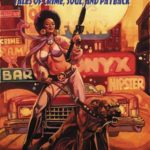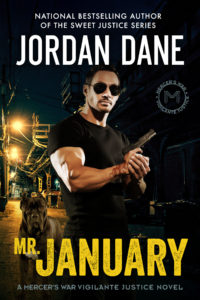 Think of the book you’re currently reading, and the one before that. Where did you find it? Library, bookstore, Amazon? Someplace else?
Think of the book you’re currently reading, and the one before that. Where did you find it? Library, bookstore, Amazon? Someplace else?
Monthly Archives: February 2017
Balancing Action with Voice – First Page Critique of Urban Patriot
Hello, my fellow TKZ warriors. I’m busy cranking on the daily word count of my next release, but I have, for your consideration, an anonymous submission from a daring author and member of TKZ. The first 400 word intro to: Urban Patriot. Enjoy and join me on the flip side for my feedback and please provide your own thoughts in your comments.
Urban Patriot
Choosing a side is dangerous, especially when it comes to politics and you’re African American from a Jewish background, that is, everybody wants to either recruit you or kill you for something. When I was getting high – on life – shit was easier, the only people interested in you were those like you unless they had their own plans which everybody in tinsel town had. One minute you’re relaxing with a naked woman’s bare legs laying on your lap and the next someone throws a stack of $100 bills in at you and says there’s more where that came from, you’re gonna love it.
Instead of letting me deal with my fate on the streets of Chicago, at 15, mom got spooked and sent me off to California to join the father I’d never met and who turned out to be a bigger jerk than the Chicago idiots I was sent away from. Which wasn’t half bad until the thrill of finally meeting him caused me to want to live with him. Grandfather and Mimi took me in where we had a small swimming pool, my own bedroom, and took me on vacations with them. Hell, I even had an allowance. Quite a step-up from sharing a 3-bedroom apartment with five siblings, a single mom, and abusive step-father.
Dr. Anita Daniels, my uncles and aunts American Socialist Party affiliation’s caught my attention like a shiny new car and what they stood for was everything I’d felt being a Black Jew living in America. Working Socialist political campaigns and African American activist activities taught me a lot, to stand-up for myself and expected the worse from people. Encounters with White Supremacists, the police, and Politicians broaden my horizons to the point of rage and cunning calm.
In a sense, I guess my past prepared me for a life of risks, questionable alliances and an “I don’t give a fuck” attitude. Especially when my wife was shot and left for dead at the airport terminal as we arrived stateside from a five-year extended stay in the Middle East, I wanted nothing more than to personally smoke that bastard of New President and burn his administration to ground. But that opportunity would come much later if only I’m I am strong enough to do it.
“Follow me” Agent Kelly Carlson demanded as I leaned over the counter asking the clerk “where is she, is she alive” “I am sorry sir, I don’t have that information” the clerk replied.
“We must leave now Mr. Anderson; your accommodations are waiting” The agent snapped. “This is bullshit” I snapped back, “I’m going anywhere until you I get some information about my wife.” “We’ll explain everything to you later, but you’ll never know unless we get going.”
The agent was already holding the glass door open as I turned toward him, stepping into the hall he whispered: “We’re all just a bunch of bureaucrats following orders – you know that.”
FEEDBACK
Overview – The strong edgy voice drew me into this introduction. It read like a diary and appeared to be set in an alternate reality or a future America. It intrigued me. But the submission starts with lots of backstory and ends with the action of what’s happening in this opening scene. Once I learned that a man’s wife had been shot and left for dead, I wanted to stick with the action. The question of why a federal agent is ushering him away and not telling him anything about his wife intrigued me far more than the backstory that could’ve come later to fill in the gaps as the story progressed.
Housekeeping – By now, you guys know how I feel about embedding dialogue within a paragraph, but this submission goes a step further and not in a good way. Dialogue is embedded and often lines from 2-3 different people.
Example of 3 different people talking in one short paragraph – “Follow me” Agent Kelly Carlson demanded as I leaned over the counter asking the clerk “where is she, is she alive” “I am sorry sir, I don’t have that information” the clerk replied.
There’s also very poor punctuation which drives me crazy. Missing commas at end of dialogue lines (ie “Follow me” Agent Kelly Carlson demanded), the use of double quotes where a single quote should be (ie “I don’t give a fuck” attitude), and missing punctuation like in the example above where there should be question marks (ie “where is she, is she alive” or the lack of a capital letter to start those questions.
Editors and agents would be turned off at seeing so many errors in the first 400 words. Don’t give them a reason to say NO.
Stick with the Action – The meatiest part of this intro was embedded inside a paragraph and almost treated too dismissively. The words ‘when my wife was shot’ should have been the focus.
In a sense, I guess my past prepared me for a life of risks, questionable alliances and an “I don’t give a fuck” attitude. Especially when my wife was shot and left for dead at the airport terminal as we arrived stateside from a five-year extended stay in the Middle East
This submission seemed flipped backwards to me, in that the action was toward the end after all the backstory. I would suggest focusing on the shock he must be feeling at seeing his wife hurt or dead, then don’t let him find answers as he’s dragged away by the agent. Below is my suggestion for a rewrite. I tried to stick with what the author had written, but just re-ordered it and added more of his shock at the start.
I had her blood on my face and my hands. I couldn’t get the image of my wife out of my head. They must’ve left her for dead at the airport terminal. That’s the only thing I could figure. One minute, we were on the tail end of a five-year extended stay in the Middle East, the next we were stateside. This should’ve been home. How could this happen…here? I wanted nothing more than to smoke that bastard of a new President and burn his administration to the ground.
“Follow me,” Agent Kelly Carlson demanded.
I had to know what happened. I leaned over the nearest counter and found a reservations clerk with enough sympathy to care.
“Where is she? Is my wife alive?”
The federal agent yanked my arm and forced me to keep in step as he hauled me through the gathering crowd.
“I’m sorry, sir. I don’t have that information,” the airline clerk called after me.
“We must leave now, Mr. Anderson. Your accommodations are waiting.” The agent picked up his pace and dragged me with him.
“This is bullshit. I’m not going anywhere until I know what happened to my wife.”
“We’ll explain everything to you later, but we have to go. Now.”
The agent held a glass door open and pushed me through it. When I stood my ground and faced him, he whispered, “We’re all just a bunch of bureaucrats following orders. You know that.”
I clenched my fists and fought a blinding rage.
The way this story started, with the intimacy of a diary, makes me wonder if this intro could stand with the action of violence, but drift back to where it all began, like the way movies begin with something horrific and back into what led up to it. If that’s not this author’s intention, I would suggest peppering in the backstory later when appropriate. I really do like the edgy voice and the ‘tude.
Names Matter – A federal agent by the name of Kelly made me think this was a woman. It wasn’t until near the end that the author lets us know the agent is a man. This is a bit nit picky, but it jarred for me to realize I had a wrong image in my head. Also, if the name Kelly will be through the whole book, that is a lot of time for the reader to forget this is a man. I also fought with another famous name – Kelly Clarkson, the singer. Her name is too similar to Kelly Carlson, the agent in this intro. I would reconsider the name.
Read your work aloud – Even with the edgy voice, there is a flow and cadence issue and typos where it reads as if the author made changes but didn’t catch all the words. If you get in the habit of reading your work aloud, you will find areas where you stumble over the words. Those are lines you should consider revising to make them flow better. Here are two examples where reading aloud would’ve helped to catch the typos:
But that opportunity would come much later if only I’m I am strong enough to do it.
“I’m going anywhere until you I get some information about my wife.”
Use of tags in dialogue – I noticed these following a dialogue line – demanded, snapped, snapped back. A whole book of words to replace a simple ‘said’ can be distracting, but in Elaine’s recent post on “The Burning Question: He said, She said,” she makes a good case to minimize even neutral tags like the word ‘said.’
Setting – I wanted to know more about where this scene takes place. I can only assume it’s at an airport terminal but the writing is too sparse to get a good sense of where this happens, especially when it starts with a backstory that mentions Hollywood’s Tinsel town and Chicago. Setting can place the reader there and trigger images in their minds. It’s important to ground the reader into imagery that enhances the emotion or action of the scene. For example, if the federal agent has to whisk this guy away and dodge travelers hauling luggage or airport security rushing toward the place where the attack on his wife took place. This kind of setting or world description could add pace and emotion to what’s happening.
On Tuesday, P J Parrish had an excellent post on Your Story as Sculpture: What to Leave In, What to Leave Out. It detailed some solid information on sparse writing (similar to this submission) and how an author should think twice about what to delete and what to keep. Check it out.
DISCUSSION:
What was your reaction to this introduction, TKZers? Did it grab you? Would you turn the page?
Mr. January available in print now (210 pages). Ebook pre-order $2.99!
Zoey Meager risks her life to search for her best friend Kaity in a burning warehouse, only to cross paths in the inferno with Mr. January, a mysterious man with a large black dog, completely devoted to its shadowy master.
Which Handgun Should Your Character Carry?
 I just returned from my annual sojourn to Las Vegas to attend the SHOT Show (Shooting Hunting and Outdoor Technology–at best, a tortured acronym), which is sponsored by the National Shooting Sports Foundation. The SHOT Show is to shooting and archery what the Detroit Auto Show is for car manufacturers, the event when new products are launched. It’s also an opportunity for me to meet with my subject matter experts face-to-face. A highlight of the SHOT Show is Media Day at the Range, when folks like me can shoot a wide variety of weapons, while sending hundreds of rounds of free ammo downrange.
I just returned from my annual sojourn to Las Vegas to attend the SHOT Show (Shooting Hunting and Outdoor Technology–at best, a tortured acronym), which is sponsored by the National Shooting Sports Foundation. The SHOT Show is to shooting and archery what the Detroit Auto Show is for car manufacturers, the event when new products are launched. It’s also an opportunity for me to meet with my subject matter experts face-to-face. A highlight of the SHOT Show is Media Day at the Range, when folks like me can shoot a wide variety of weapons, while sending hundreds of rounds of free ammo downrange.
As I wandered the 17 miles (!) of display aisles, it occurred to me that the average writer–or person, for that matter–cannot comprehend the thousands of variations that exist for what we casually call a gun. In this post, I thought I’d walk you through some of the major decisions your character would consider in deciding which firearm to carry.
Revolver, Pistol, or . . . Something Different?
For we gun porn purists, pistols and revolvers ar e mutually exclusive. Both are handguns, but they operate under entirely different principles. A revolver, otherwise known as a “wheel gun”, holds its cartridges in a cylinder that rotates as the hammer comes back and prepares for each shot. The revolver in the picture features an external hammer, and can be fired double action (DA) or single action (SA), which makes it a DA/SA revolver. (Double action means that with the hammer down, a single pull of the trigger with bring the hammer back, rotate the cylinder, and then drop the hammer again, firing the gun. Single action would describe the condition where the hammer is manually cocked and remains back–“condition zero”. From this condition, the trigger is more sensitive by a large margin.) Generally, there are no external safeties on a revolver. The fact of the long DA trigger pull functions as a safety. Only a fool would carry a revolver in condition zero.
e mutually exclusive. Both are handguns, but they operate under entirely different principles. A revolver, otherwise known as a “wheel gun”, holds its cartridges in a cylinder that rotates as the hammer comes back and prepares for each shot. The revolver in the picture features an external hammer, and can be fired double action (DA) or single action (SA), which makes it a DA/SA revolver. (Double action means that with the hammer down, a single pull of the trigger with bring the hammer back, rotate the cylinder, and then drop the hammer again, firing the gun. Single action would describe the condition where the hammer is manually cocked and remains back–“condition zero”. From this condition, the trigger is more sensitive by a large margin.) Generally, there are no external safeties on a revolver. The fact of the long DA trigger pull functions as a safety. Only a fool would carry a revolver in condition zero.
Recent years have seen a growth in the popularity of the DAO (double action only) revolver. With no external hammer to cock, every pull of the trigger is double action. The upside of a hammerless revolver is the ease of the draw from concealment (hammers have a way of snagging on clothing).
 A pistol, on the other hand, carries its load in a magazine that is inserted in the grip. As the weapon fires, the slide cycles, ejecting the spent shell casing and pushing the next round into battery. The picture at the top of this post of me at the range shows this cycling action of a Glock 36 at 1/4000 of a second–thanks to my son, Chris, for getting the picture.
A pistol, on the other hand, carries its load in a magazine that is inserted in the grip. As the weapon fires, the slide cycles, ejecting the spent shell casing and pushing the next round into battery. The picture at the top of this post of me at the range shows this cycling action of a Glock 36 at 1/4000 of a second–thanks to my son, Chris, for getting the picture.  The pistol in the picture with the revolver has no hammer, but is rather “striker fired”–a distinction that is best left to a future post. Striker fired pistols may or may not have external safeties. Some pistols have external hammers, such as the Colt Defender in the picture. As shown, the Colt is in condition one, which means cartridge in the chamber, hammer back and safety on–otherwise known as “cocked and locked.” In yet another iteration, many manufacturers make DA/SA pistols. The Bersa Thunder in the photo offers a very long, hard DA trigger pull for the first shot, which leaves the hammer back for a SA follow-up shot. For most DA/SA pistols, the “safety” is not a safety at all, but rather a de-cocker, which safely returns the hammer to its DA position.
The pistol in the picture with the revolver has no hammer, but is rather “striker fired”–a distinction that is best left to a future post. Striker fired pistols may or may not have external safeties. Some pistols have external hammers, such as the Colt Defender in the picture. As shown, the Colt is in condition one, which means cartridge in the chamber, hammer back and safety on–otherwise known as “cocked and locked.” In yet another iteration, many manufacturers make DA/SA pistols. The Bersa Thunder in the photo offers a very long, hard DA trigger pull for the first shot, which leaves the hammer back for a SA follow-up shot. For most DA/SA pistols, the “safety” is not a safety at all, but rather a de-cocker, which safely returns the hammer to its DA position.
What difference does it make?
There are so many variables, but consider just a few:
- If your character is going to shoot through a pocket or a purse, a revolver is the better choice because a pistol’s slide would likely get fouled or tangled in fabric, making a follow-up shot difficult if not impossible.
- It’s much more cumbersome and time consuming to reload a revolver.
- No modern revolver I can think of is compatible with a suppressor.
- For less-experienced shooters, a DA/SA revolver is generally a better choice.
What Caliber?
I’ve discussed bullet choices here in TKZ before, so I won’t regurgitate all of that here, but it is definitely a consideration. If your character is a cop or in the military, chances are that s/he won’t carry anything smaller than 9mm. On the flip side, I don’t know anyone who carries the Harry Callahan .44 magnum (“the most powerful handgun in the world and will blow your head cleeean off), but I know lots of people who carry .45 or .357 magnum.
Where on their bodies do they carry the gun?
 If your character is an on-duty cop or active duty military, where sidearms are worn in some kind of duty rig, the sky’s the limit for what they want to carry. You can buy holsters for all kinds of hand cannons. The choices become more limited when it’s important for your character to conceal his or her weapon. As a general rule, the larger the firearm, the harder it is to conceal. The obvious corollary is that bigger people can conceal bigger guns.
If your character is an on-duty cop or active duty military, where sidearms are worn in some kind of duty rig, the sky’s the limit for what they want to carry. You can buy holsters for all kinds of hand cannons. The choices become more limited when it’s important for your character to conceal his or her weapon. As a general rule, the larger the firearm, the harder it is to conceal. The obvious corollary is that bigger people can conceal bigger guns.
 When it comes to carrying a gun on one’s belt, the critical first choice is inside-the-waistband (IWB) vs. outside-the-waistband (OWB), and both mean exactly what the words say. Generally, OWB carry is more detectable,
When it comes to carrying a gun on one’s belt, the critical first choice is inside-the-waistband (IWB) vs. outside-the-waistband (OWB), and both mean exactly what the words say. Generally, OWB carry is more detectable,  but with the right holster and an effective cover garment, it can be very effective. By contrast, IWB carry allows for concealment by means as simple as an untucked T-shirt. On the downside, the gun takes up waistband real estate that would otherwise be used by the waist.
but with the right holster and an effective cover garment, it can be very effective. By contrast, IWB carry allows for concealment by means as simple as an untucked T-shirt. On the downside, the gun takes up waistband real estate that would otherwise be used by the waist.  If your character wears skinny jeans, IWB could be a problem. IWB carry positions are referred to as positions on a clock face, where one’s navel would be 12 o’clock and the right hip would be 3 o’clock. The IWB position in the picture is referred to as “appendix carry”, and for the life of me, I don’t know how he would be able to sit down. Shoulder rigs are popular in movies and television shows, but I
If your character wears skinny jeans, IWB could be a problem. IWB carry positions are referred to as positions on a clock face, where one’s navel would be 12 o’clock and the right hip would be 3 o’clock. The IWB position in the picture is referred to as “appendix carry”, and for the life of me, I don’t know how he would be able to sit down. Shoulder rigs are popular in movies and television shows, but I  have never met a real person who wore one and didn’t hate it over time. They’re hard on the shoulders, and you can never let your arms hang normally. But the deal breaker for me would be that during the draw stroke, you pretty much have to point the gun at the person behind you, and then subsequently at yourself. That violates the basic tenets of firearm safety–as do many of the specialty retention devices such as the bra holster. ‘Nuff said, can we agree?
have never met a real person who wore one and didn’t hate it over time. They’re hard on the shoulders, and you can never let your arms hang normally. But the deal breaker for me would be that during the draw stroke, you pretty much have to point the gun at the person behind you, and then subsequently at yourself. That violates the basic tenets of firearm safety–as do many of the specialty retention devices such as the bra holster. ‘Nuff said, can we agree?
Now, suppose your character needs to go for deep concealment, and the weapon is merely for close-in defense? Suppose the only concealment option is a vest pocket, or perhaps a boot? Search the Web for specialty guns that are actually well-made and very effective for what they are. North American Arms makes a mini-revolver that easily fits in your fist, and can be chambered in .22 magnum, a round that shows very similar terminal ballistics to a .38 special, un
the only concealment option is a vest pocket, or perhaps a boot? Search the Web for specialty guns that are actually well-made and very effective for what they are. North American Arms makes a mini-revolver that easily fits in your fist, and can be chambered in .22 magnum, a round that shows very similar terminal ballistics to a .38 special, un der ideal circumstances. The tiny, nearly non-existent barrel is a problem for a shot longer than, say, 10 yards, but as a belly gun, it’s kind of impressive, and since it’s a revolver, your character gets five tries to bring justice to another character.
der ideal circumstances. The tiny, nearly non-existent barrel is a problem for a shot longer than, say, 10 yards, but as a belly gun, it’s kind of impressive, and since it’s a revolver, your character gets five tries to bring justice to another character.
The Derringer lives on. Bond Arms manufactures a wide line of two-shot firearms that come chambered in nearly every caliber. One will even take 410 gauge shotgun shells. Beware, however, that there’s a direct trade-off between the weight of a firearm and the degree of felt recoil. These little guns kick like angry horses.
Questions?
At this point, rather than me blathering on answering presumed questions, let’s switch over to the real things. Any particular problems you’re tackling in your WIP?
Your Story As Sculpture:
What to Leave In? What to Carve Out?
Perfection is reached not when there is nothing left to add, but when there is nothing left to take away.” – Antoine de Saint-Exupery.
By PJ Parrish
Two weeks ago, I posted a critique from one of our TKZ First Page writers. I liked the submission but I thought the writer erred on the side of being a little too spare in her writing. I called it “skeletal,” in fact. Click here to go back and review it.
It got me thinking, though, about sculpture. Back in college, I was briefly an art major, and while I was pretty decent in drawing and painting, I floundered in anything involving three dimensions. My final project in sculpture class was titled “Nude With a Dixie Cup Head.” I called it that because after carving away at my lump for weeks it still looked like hell, so during one long desperate night in the dorm bathroom, I filled a Dixie Cup with plaster, jammed it onto the torso, and called it a night. I got a D in the class.
But that class did teach me something that later helped me when I became a writer: You have to know what to leave in and what to carve away.
Usually, we think of novel writing as a pretty linear endeavor. We don’t chisel away at marble or plaster until something emerges from the crude material. We start with nothing (the blank page) and add and pad until our vision is realized.
Writing a novel is a long series of questions and answers that you constantly ask yourself as you move through your story. As you do so, maybe it’s helpful to think about writing in terms of three-dimensional design. Consider…
Setting: Did I establish where my story takes place concretely enough so the reader feels transported to coastal Maine or does the setting feel like some generic Anywhereville? Am I wasting too many words describing this old insane asylum or do I need more to enhance the mood, to achieve what Poe called “the Unity of Effect”? If a setting is, indeed, like a character, is mine a quick line sketch or is it a well-rendered life-drawing? Or worse, is it not a character at all but just a sloppy caricature of Paris, Las Vegas, Miami…fill in the place with whatever postcard image you can come up with.
Backstory: How much do I reveal about Joe’s tortured past and do I deal with it in one long flashback scene or do I dribble it in slowly? Am I boring my reader with all this family-tree data or do they need it to understand the dynamics between mother and daughter? And if you write a series — how much about a character’s past from previous books do you need to add? Too much and you bore loyal fans; too little and you confuse new converts. If you go back and read the submission I mentioned above, you’ll see that I asked the writer, even in her first 400 words, to include a few more tidbits about her characters to add intrigue.
Description: Do I tell the reader what my protag looks like or do I let it fall to their imagination? Have I successfully conjured up this police station so the reader feels the atmosphere or does it add nothing to the narrative? Have I exploited my description? This is a subtle tool of fiction but important: Do you make your descriptions mean something? Do they somehow enhance and reflect what is going on in your action?
Years ago, at Thrillerfest, I heard David Morrell talk about this brilliantly. He talked about how the novelist John Barth used a method call “triangulation.” (James Hall teaches this as well). When describing your setting, you take the sense of sight for granted, but then you add two other senses from among the remaining four. If your characters merely “see” everything, your writing will feel one-dimensional. So you “triangulate” and emphasize the other senses.
Tattoo this line from Morrell on your forehead: “The flaw of an amateur is to assume what’s in our head is what’s on the page.”
Think of Hemingway, a master of spare writing, yet you always got a sense of where his characters were, be it Havana, Africa or Key West. “The Snows of Kilimanjaro” opens with five paragraphs of dialogue but then we get this:
The cot the man lay on was in the wide shade of a mimosa tree and as he looked out past the shade onto the glare of the plain there were three of the big birds squatted obscenely, while in the sky a dozen more sailed, making quick-moving shadows as they passed.
So lean…yet Hemingway knew what to carve away and what to leave in. Not too much. Not too little. Such a delicate balance.
What to leave in and what to carve away is foremost in my brain lately because I am nearing completion of my first draft and rewrites loom. What I know awaits me…
I have to add some stuff: I need to go back and beef up the backstory of a key character or his motivation in chapter 33 will make no sense. I have to add a little more color and work harder to make my setting come alive for the reader in Peoria who has never been to Michigan’s Upper Peninsula.
I need to subtract some stuff: The book is too long in sheer page count. And without even opening the early chapters, I can smell some cheese that needs cutting. I have to cut some passages that are larded with research, even though I worked really really hard to educate myself on copper mining, Catholic ritual and obscure whiskeys. I need ferret out my writer tics, do a delete on extraneous attributions, and kill such darlings as “the road rose before him in a vampiric mist.”
Kill your darlings…
Faulkner supposedly said it first, but I like how Stephen King put it: “Kill your darlings, kill your darlings, even when it breaks your egocentric little scribbler’s heart, kill your darlings.”
Now, what does that mean, really? That you’re supposed to cut away all your best, most writerly stuff? I dunno. If you struggle with rewrites as I do, if you don’t know whether to approach it with a sledgehammer or a scalpel, I recommend you start by reading Chuck Wendig’s essay “25 Steps to Edit the Unmerciful Suck Out of Your Story.
A darling is often ill-defined as those things in your story that you love, but that’s daft. Don’t kill those things. Might as well say, “Murder your wife, burn your house down, YOU DO NOT DESERVE SUCH THINGS.” No, a darling is something that you love but that cannot justify itself in the text. You write a chapter in the middle of the book that has no bearing on the rest of the book and it drags down the pacing but you love-love-love it, well, that chapter might need two bullets in the chest, one in the head. Behead those precious, preening peacocks. I tend to do this at the very end, often because that’s when I actually have enough context and instinct regarding the draft that I can see those divots and nodules at a healthy distance. That said, it’s something to be aware of throughout the entire writing and editing experience.
I highlighted that part in red, because I think it gets to the nub of what I am trying to articulate here. (And forgive me if this feels obtuse but I can’t quite get this nailed down).
What to leave in? What to leave out? Are you a builder or a sculptor? Do you start with nothing or maybe a bare armature pf a plot? Or do you start with a big heaping mound of wet clay and pare away until your story is revealed?
I can leave you only with one last quote, this one from Elie Wiesel: “Writing is not like painting where you add. It is not what you put on the canvas that the reader sees. Writing is more like a sculpture where you remove, you eliminate in order to make the work visible. Even those pages you remove somehow remain.”
First Page Critique: the Silencer
Happy Monday! Today we critique the first page submission entitled The Silencer. As always, kudos to those brave enough to submit. My comments follow.
The Silencer.
Friday, 9:45 a.m.
But the tongue can no man tame; it is an unruly evil, full of deadly poison.
James 3:8
The worst part about waiting to testify is I spend the entire time terrified the lawyers will uncover some huge mistake that screams how lazy and incompetent I am. I tell myself a hundred different ways that I always do the best I can … but I don’t really listen.
After so many appearances in court you’d think I’d have no problem when it comes time to testify. But it never fails. Every time the bailiff comes to get me from this small waiting room, the cycle begins. My therapist once told me my fear in court had more to do with my lack of control then my ineptitude as a witness. I disagree. Then again, she also said I joined the police in an effort to stop for others what I couldn’t stop for myself when I was younger.
The door swung open and a big woman with a horsey face and short gray hair stepped inside. Her uniform hugged her well-nourished figure. The web belt is off-center and sagged to her right, the holster almost resting on her thigh. She looked directly at me and I’m waiting to see if her voice sounded like John Wayne.
“Detective Rebecca Watson?” she asked in a soft voice.
“That’s me.” Like clockwork, my stomach twists into a knot, pushing its contents toward my throat as I stand and follow her into the courtroom.
The courtroom is overflowing with spectators and media. Knees trembling, my high heels echoed off the marble floor as I approach the witness stand, carrying a red binder, also known as a murder book. Today is going to be a very tough day. This is no ordinary case. The Florida Supreme Court awarded Leonard Lee Lucius a new trial or whatever verbiage they used. Some crap about tainted evidence. Anyway, his new defense team argued a crucial piece of evidence, the knife used to kill his girlfriend, Teri Goodson, was exposed to foreign fibers after being collected from the crime scene and before being signed into the evidence locker.
Apparently, neither the jurors nor his lawyers saw fit to argue this point during the previous trial. The jury found him guilty. The District Attorney sought the death penalty, but Lucius ended up with life.
All eyes in the courtroom focused on me. I kept my head straight to avoid their stares. As each foot stepped in front of the other, it feels like I’m the one on trial. This isn’t true, but I can’t wrap my head around the fact they’re judging me, even before being sworn in.
My comments
Overall I enjoyed this first page, but there were a few critical elements that held me back from being fully engaged or invested in this story. I’ve summarized these under two main headings: Character Development and Dramatic Tension. I’ll deal with each in turn.
Character Development
- The main protagonist, Detective Rebecca Watson, seems in the first paragraph at least, to be a rookie who is understandably nervous about appearing in court. The second paragraph, however, indicates that she has appeared countless times and it sounds like her anxiety is more of a deep-rooted issue (one she sees a therapist about) based on a traumatic event in the past which is what drove her (at least in the therapist’s opinion) to being a police officer. This sense of inconsistency, makes it hard to get a handle on Rebecca as a three dimensional character . By the end of this first page I have to admit, she seems rather generic and her anxiety makes her feel less believable as a seasoned detective. This meant I wasn’t totally invested in her as the main character.
- I also felt like I needed some action and drama rather than merely exposition about Rebecca as a character. I wanted to feel like I was in Rebecca’s head hearing her unique voice but also seeing her in action.
- Although I feel like the writer knows his/her character, as readers we aren’t on a firm foundation (I don’t quite buy Rebecca as a detective yet). Why does she feel like she’s constantly being judged? Why does she lack confidence in her abilities – is it this case, or part of her own neuroses? If I’m going to like Rebecca and root for her as a main character, I feel like a need more depth even on this first page. This may come more in the form of intriguing specifics that can be fleshed out later but at the moment there’s not enough that goes beyond the standard ‘cop’ genre to really draw me in. Action demonstrates character far more than mere description or background.
- Also, there seems a few contradictions on this first page – she seems nervous and anxious, yet she’s supposedly experienced. She is a detective but she says ‘new trial or whatever verbiage they used’ when speaking of the Supreme Court when, as a detective she would know exactly what was ordered.
- We also get far too much detail about the bailiff when compared to the protagonist – If Rebecca was a detective wouldn’t she already know most of the court staff? We also don’t know whether Rebecca was involved in the initial investigation or her role in the tainted evidence question that is the reason for her court appearance (we assume).
Dramatic Tension
- A first page is first and foremost a powerful lure that draws a reader in. It has to set the scene as well as the main character and, most importantly, it needs to have dramatic tension to ensure a reader is immediately invested in the story. At the moment this first page seems more of an introduction than a dramatic entry point to the story. We learn about Leonard Lee Lucius’s new trial in a rather cumbersome way with details that should come later or should be used in the first page to greater dramatic effect (perhaps by way of a scene in which the police are confronted by the tainted evidence).
- Overall, it felt like there was too much time spent on Rebecca’s worries/feelings of inadequacy that on establishing a dramatic scene that confronts and intrigues the reader. I was left wanting more ‘oomph’ to keep me going and a stronger, more consistent main character that had flaws as well as depth but who felt ‘real’ from the get go.
- I also wasn’t sure how the biblical quotation at the start of the page relates to the story – while we don’t need an answer per se, I think readers would like to get a sense of how it illuminates the story to come.
So TKZers, what are some of your comments and feedback? How can we help this writer punch this first page up to the next level?
Let it Bite, Then Start to Write
by James Scott Bell
@jamesscottbell
By now you all know that Super Bowl LI (that’s 51 for you scoring at home) was one of the most thrilling football games of all time. Down by 25 points in the third quarter to the Atlanta Falcons, the New England Patriots somehow managed the greatest comeback in Super Bowl history, pushed the game into overtime, then won by scoring a sudden-death touchdown.
There were many spectacular highlights, most notably an impossible catch made by Patriot receiver Julian Edelman. With under three minutes to play in the fourth quarter, Patriots QB Tom Brady threw a ball that was tipped into the air. There were three Falcons in position to pick it off. The ball almost hit the ground, but the diving Edelman reached for it with his right hand. The ball then bounced off the foot of a grounded Falcon and was, for
But the key sequence of the entire game revolved around two huge mistakes by the Falcons.
It was the fourth quarter. Atlanta was ahead 28-20 with 3:56 left. They had the ball at New England’s 23-yard-line, which was well within field goal range. All they had to do was get the 3 points and the game would be out of reach for the Pats.
But then … disaster. Falcon QB Matt Ryan, the league’s Most Valuable Player, dropped back to pass. Patriot’s defensive end Trey Flowers broke through the blocking and pulled Ryan down for a 12-yard sack!
Uh-oh. Well, the Falcons were still barely within field goal range. But on the very next play, Falcons lineman Jake Matthews was called for holding. That lost the Falcons another five yards, and no chance at a field goal. After an incomplete pass by Ryan, the ball ended up back in Tom Brady’s hands, and the rest is Super Bowl history.
Oh my.
Monday morning QBs across the nation were saying things like, “Matt Ryan just cannot take that sack!” They posited that he should have thrown the ball away. To be fair, after watching the replay several times, I don’t think Ryan had that chance. Trey Flowers simply made a huge, game-changing play.
And yet, that’s the way it is in the NFL. The quarterback gets most of the praise when a team wins … and most of the blame when it loses.
But to lose in such a spectacular fashion, on the world’s biggest stage, has got to be a gut punch like no other. In the locker room after the game a subdued Ryan could only mouth the expected words.
“That’s a tough loss,” Ryan said. “Obviously, very disappointed, very close to getting done what we wanted to get done. It’s hard to find words tonight.”
So much changed because of that one sack and one penalty. Tom Brady went from being “in the conversation” about the best QB of all time, to the undisputed holder of that title.
And Ryan, who had been brilliant in the regular season, could have put himself on a track to the Hall of Fame. Instead, has to hear from all the naysayers that his mistake cost the Falcons a championship and that he “chokes” in the big games.
All elite athletes know the thrill of victory, the agony of defeat, and the sting of abusive criticism.
It’s what they do about it that makes champions.
I know Matt Ryan doesn’t have any quit in him, nor does the Falcons talented young coach, Dan Quinn. They will be back. All the way to the Super Bowl? I would not bet against it.
But let’s talk about you, writer. There are so many ways you can feel defeated.
- You’ve just started. You love to write. You’ve poured your heart into your first novel. Every day you wrote was a high. The story flowed out effortlessly! Now you show it to a trusted friend, someone who knows good writing. And you get back the words, “This just doesn’t work.” (Been there.)
- You’ve studied and practiced and written three or four more novels. It’s taken you a couple of years to feel like you’ve got a handle on things. Your beta readers, and a freelance editor, tell you this one’s ready. You query agents … for a year and a half … with no takers.
- Your book gets accepted by a small publisher. Not one of the Bigs, but hey! It’s a traditional publisher, after all. They’ll do the cover, the layout, the marketing! Then the book comes out and lays a soft-boiled egg.
- You’re a midlist writer, one who had a three-book contract with one of the Bigs. You even got invited to BookExpo to sign your first book, which got a great review from Publishers Weekly. But when it didn’t sell enough copies to satisfy the bean counters, your next two books were brought out with virtually no support. The publisher did not offer you another contract.
- The book of your heart, the one you’ve labored over for a year or more, off-brand, gets the green light from your publisher but the red light from critics, and dies on the vine.
- Your agent stops returning your phone calls.
- You self-publish your first novel, and you know darn well it’s good. You do everything the indie gurus tell you to do to get the word out. You try every promo trick in the book. After a year you have three reviews on Amazon and a rank in seven figures.
All of the above has happened countless times. Something like it has happened, or will happen, to you. So how do you handle the agony of defeat?
Let it bite, then start to write.
Meaning:
Let the defeat hurt for a time … an hour … if you must, a day where you eat nothing but ice cream … but no more! Get back to your keyboard! When you are concentrating on the page in front of you, you are not thinking of the bad thing. When you finish writing, and the bad thing tries to come back to bite you again, the feeling won’t be as strong as it was. If the bad thing persists, rush right back to your typer––pen and paper works, too––and start writing immediately! See first if you can use your emotion to intensify a scene in your WIP. But anything else will do, too … a journal entry, a first line out of the blue, a jingle for toothpaste, a poem, a rant, flash fiction. Just get the words down without too much thought. You can think later. “Write like there’s no tomorrow. Edit tomorrow.” Repeat as needed.
“You must stay drunk on writing,” sayeth the Great Bradbury, “so reality cannot destroy you.”
So what did Matt Ryan have to say the day after the game? He took to Instagram:
 “We came up short last night and my heart hurts for you Atlanta. Hats off to New England they played a heck of a game. We will adapt, we will over come, we will #RiseUp again.”
“We came up short last night and my heart hurts for you Atlanta. Hats off to New England they played a heck of a game. We will adapt, we will over come, we will #RiseUp again.”
The same for you, writer. You will adapt. You will overcome.
You will rise up again.
First Page Critique: DEATH BY PROXY
Good day to you all, and join me in welcoming today’s Anon, who graciously submitted the first page of their work in progress, DEATH BY PROXY, for critical reaction:
If a lawyer saves you from prison and gives you a job, you’ll do anything he asks.
Which is why Tawny Lindholm was driving at a crawl through a January Montana blizzard, trying to find house numbers on condominium buildings. Whoever laid out Golden Eagle Meadows Golf Resort didn’t have much sympathy for pizza deliveries or a nosy middle-aged woman trying to find the unit where her boss’s father lived. A good six inches of fresh snow layered the street, with more heaped up on the curbs. She parked the Jeep Wrangler and crunched through white banks. Her booted feet shuffle-scuffed on what she hoped was the slippery walkway to the right condo.
Icy bullets stung her cheeks and nose, penetrating the wool scarf. With a gloved hand, she thumped on the door. Waited. At nine-thirty in the morning, he should be awake. Thumped again. Waited.
At last, the door swung open. Inside stood a preview of what her boss Tillman Rosenbaum would look like in thirty years. Stoop-shouldered, but still way over six feet tall, lanky build, iron gray curls, snapping black eyes, jutting lower jaw, and a suspicious snarl for a greeting. “What?”
Tawny smiled with as much warmth as she could manage at ten degrees. “Mr. Rosenbaum, my name is Tawny Lindholm. I wonder if I could have a few minutes of your time.”
“You’re too old to be selling Girl Scout cookies.” The door started to close.
“I’m not selling anything, sir. I work for your son and he asked me to—“
“I have no son!” the bass voice roared.
Tawny forced her smile wider. “Sir, if I could just talk to you for a few minutes.” Her teeth chattered. “I promise I won’t take up much time.”
The old man glared down at her.
Tawny had already felt that same rage from the son and learned to stand up to him. Would that work with the father? She met his dark angry eyes with a steady gaze. “Mr. Rosenbaum, your son is my boss and I know as well as you do that he’s a big pain in the ass. If I don’t do what he’s told me to do, he’ll fire me and, sir, I really need this job.”
The first page of Death by Proxy is actually very well done. Anon, you have a future as a writer, but let’s fix that formatting. Let’s indent the first sentence of each of your paragraphs by five spaces, rather than what you have, and while we are at it double space each line. Also, old guys like John Gilstrap appreciate it when you increase your font size to 12, as I have done above. It makes your efforts easier to read, as opposed to the 9.5 you used originally.
That done, let’s take an overview of what we have. The substance is good. It’s very good, actually. A lesser writer would have started by describing Tawny Lindholm as a middle-aged woman employed by an attorney who was walking up a driveway in the middle of a snowstorm. Anon tells us all of this in due course, but gradually. Anon starts with an intriguing sentence that raises a question for later — what sort of trouble was/is our protagonist in? — thus baiting the hook that tugs the reader into the story. The mood is very well set, indeed, with the description of the weather. Did Anon grow up in the Midwest? Death by Proxy sure reads like it. I love that “shuffle-scuffed” term. I had never encountered the term before, but I certainly know what it is. We here in flyover country learn at an early age how to “shuffle scuff” on an icy sidewalk or we develop callused posteriors. Anon also does a terrific job of hinting at the conflict between the father and the son. It reminds me of a joke about two guys on a camel and…anyway, it’s well done. I was honestly very disappointed when the page ended.
As good as the substance is, the form needs a little first aid. Fortunately, we’re looking at bandages instead of casts or sutures. I will note, Anon, that it appears you took the time to proofread. I couldn’t find any typos. There’s another good job well done.
Now let’s put the bandages, with a little Neosporin, on the abrasions. One element that sticks out, Anon, is that you seem to like using incomplete and fragmented sentences. You absolutely can and may use them; they do have a place. Don’t overdo it, however. You’ve got several in your first page. If the rest of your manuscript is similar then I would recommend going through your story and changing four of every five fragments to complete sentences. Using too many of them interrupts the flow of your narration.
Here we go:
Paragraph Two:
— “Which is why Tawny Lindholm was…”
hmmm. “That was why…” would be better. You can and may use a conjunction to start a sentence, but it’s awkward here. You also want the tenses to match, rather than jumping from present to past tense within the space of a few words.
— “…sympathy for pizza deliveries or nosy middle-aged woman…”
For consistency’s sake — what Jim Bell and others who actually know how to teach this stuff would call “sentence parallelism” — you want to use “pizza deliverers” or “pizza delivery people” with “middle aged woman,” thus having “people,” if you will, on either side of that “or,” instead of an action — “deliveries” — on one side and a person on the other.
Paragraph Three:
— “ Icy bullets stung her cheeks and nose, penetrating the wool scarf.”
I love the elements of the sentence, but not the order of the clauses. Those icy bullets — good description, Anon — penetrate the scarf — her scarf — first, and then sting her cheek and nose. Tell what happens in the order it occurs. “Icy bullets penetrated her wool scarf and stung her cheeks and nose.” (or “…stinging her cheeks and nose.”) Let’s also change the order of the clauses in the next sentence,
—“With a gloved hand, she thumped on the door.”
I’m a sick puppy, so I visualized Tawny holding a severed, gloved hand, bleeding profusely from the wrist, and using it to knock on the door. Switch the clauses and make it personal. “She thumped on the door with her gloved hand.” Or, better yet, “She knocked on the door, her gloved hand almost numb from the bitter cold.”
— “Thumped again. Waited.”
Try transforming these two incomplete sentences into one complete one: “She thumped (or knocked) again and waited.”
Paragraph Four:
— “…in thirty years. Stoop-shouldered, but…”
Let’s use a colon to make the sentence fragment beginning with “Stooped shouldered” a part of the preceding sentence (I really like the set up, by the way, as it tells us not only what the father looks like but gives us an idea about the son, as well). How about “…thirty years: stoop-shouldered, but…”
Paragraph Five:
— “Tawny had already felt that same rage from the son and learned to stand up to him. Would that work with the father?”
Let’s call the “son” by his name — Tillman — once in while, or by his familiar title, “her boss.” Let’s also break the first sentence up a bit and then change the second sentence slightly to reflect that change, as follows: “Tawny had already felt that same rage from her boss. She had learned to stand up to it, and to him. Would it work with his father?”
Anon, this may seem like a whole slew of corrections, but please don’t be discouraged. Go back to what I said about being disappointed when the first page ended. Please keep going…and thank you for sending your submission to TKZ’s First Page Critique!
I will step aside at this point (for the most part). Are there any comments or questions from our friends out there?
Reader Friday: Best Book You Read Last Year?
The Burning Question: He Said, She Said
By Elaine Viets
 Every author uses he said or she said. Many of us believe a simple said is better than four-dollar words like “opined” or “uttered.”
Every author uses he said or she said. Many of us believe a simple said is better than four-dollar words like “opined” or “uttered.”
Recently, something my editor said made me rethink my own use of said. She said I didn’t need to use he said or she said with every paragraph. She’d been reading the first chapter of Fire and Ashes, my November 2017 Angela Richman Death Investigator mystery. My editor wasn’t against getting rid of all saids – just the ones where it’s obvious who is speaking.
In this excerpt, Angela has been called out to a fatal fire at Luther Ridley Delor’s mansion in mythical Chouteau Forest, Missouri. At age seventy, the Forest financier created a major scandal when he left his wife of forty years for Kendra Salvato, a twenty-year-old manicurist. Luther gave Kendra an engagement ring with a diamond bigger than Delaware, and swore they’d marry as soon as he was free. Now his mansion is burning. Someone inside has died, and the firefighters are about to bring out a body. Nobody knows if it’s Kendra or Luther. Here’s the first version that sparked my editor’s comment:
 Hastily dressed gawkers gathered in the cul-de-sac outside the burning house. Angela stood next to a scrawny-legged bald man in blue boxers and sandals, and tried not to look at his pale, flabby chest. She knew him: Ollie Champlain. Ollie lived on stale bar snacks and martinis at the Forest Country Club.
Hastily dressed gawkers gathered in the cul-de-sac outside the burning house. Angela stood next to a scrawny-legged bald man in blue boxers and sandals, and tried not to look at his pale, flabby chest. She knew him: Ollie Champlain. Ollie lived on stale bar snacks and martinis at the Forest Country Club.
“Woo-eee!” Ollie said. “You can almost smell the money burning. That’s Luther’s house.”
“Don’t be disgusting,” said a worried woman clutching a long baggy plaid bathrobe. “The smell is horrible.”
Angela silently agreed. She caught the toxic stink of melting plastic mixed with the stomach-turning stench of burned meat and hair. The flames were eating the victim’s body.
Ollie refused to be shamed. He acted as if the fatal fire was staged for his entertainment. “Look at the firefighters taking axes to that bay window,” he said. “I can hear the corks popping in that thousand-bottle wine room.”
“Hmpf,” Plaid Bathrobe said. “The way Luther drinks, I doubt if he could keep a thousand bottles.”
“He was definitely pissed tonight,” Ollie said. “I watched him stagger home with his little Mexican cutie. Kendra had to help him inside the house. It was fun watching her in that tight white dress. Luther was too drunk to walk into his house, much less run out of it. Jeez, I hope that’s not her burning in that house. What a waste of a fine p–”
Plaid Bathrobe glared at him. He said “– a fine young woman. He’s a shriveled old coot. I hope she gets out alive.”
Now take a look at the same section after a said-ectomy.
 Hastily dressed gawkers gathered in the cul-de-sac outside the burning house. Angela stood next to a scrawny-legged bald man in blue boxers and sandals, and tried not to look at his pale, flabby chest. She knew him: Ollie Champlain. Ollie lived on stale bar snacks and martinis at the Forest Country Club.
Hastily dressed gawkers gathered in the cul-de-sac outside the burning house. Angela stood next to a scrawny-legged bald man in blue boxers and sandals, and tried not to look at his pale, flabby chest. She knew him: Ollie Champlain. Ollie lived on stale bar snacks and martinis at the Forest Country Club.
“Woo-eee!” Ollie said. “You can almost smell the money burning. That’s Luther’s house.”
“Don’t be disgusting.” The worried woman next to him pulled her baggy plaid bathrobe tighter around her pillowy middle. “The smell is horrible.”
Angela silently agreed. She caught the toxic stink of melting plastic mixed with the stomach-turning stench of burned meat and hair. The flames were eating the victim’s body.
Ollie refused to be shamed. He acted as if the fatal fire was staged for his entertainment. “Look at the firefighters taking axes to that bay window. I can hear the corks popping in that thousand-bottle wine room.”
“Hmpf.” Plaid Bathrobe clearly disapproved of Luther and Ollie. “The way Luther drinks, I doubt if he could keep a thousand bottles.”
“He was definitely pissed tonight. I watched him stagger home with his little Mexican cutie. Kendra had to help him inside the house. It was fun watching her in that tight white dress. Luther was too drunk to walk into his house, much less run out of it. Jeez, I hope that’s not her burning in that house. What a waste of a fine p–”
Plaid Bathrobe glared him into changing his words. “– a fine young woman. He’s a shriveled old coot. I hope she gets out alive.”
What’s your opinion? Is this a case of the less said, the sooner ended?
*************************************************************************************************
 Win 44 Caliber Funk, a new anthology with my short story, His Funkalicious Majesty. Set in the glittering disco days of the 1970s. Click Contests at www.elaineviets.com
Win 44 Caliber Funk, a new anthology with my short story, His Funkalicious Majesty. Set in the glittering disco days of the 1970s. Click Contests at www.elaineviets.com
Betting On The Muse
A couple of weeks ago I started writing my post for today, and said, I need to think more on this before I put it out there. So I put it aside, and didn’t get back to it right away because I’m an all-or-nothing kind of gal. As in, I can only focus well on one thing at a time and I had a pretty big thing to focus on: I finished my ninth novel on Monday morning. May I qualify that? I finished my ninth novel, but the first two were practice novels, and I never sent them out. (But now that I’ve typed that out loud, I wonder why I so easily discount those two just because they haven’t been published.)
Number nine is a mess. It’s quite possibly the messiest first draft I’ve ever written. The Intruder is something new for me: a suspense novel without a hint of supernatural in it, and I’m not ashamed to tell you that it has been a little difficult to switch gears. It’s not like I’ve only written supernatural stories. Fully half of my published short stories are straight crime, i.e. contain nothing surreal or supernatural, and those first two “practice” novels didn’t contain any supernatural elements, either. But when my third novel (first one published), Isabella Moon, which was all about the ghosts, sold for actual money, I figured I should stick with what worked. I didn’t look back until about a year ago.
Writing about ghosts and demons is enjoyable to me. It’s fantasy. An escape. As writers—may I speak for us all here?—we spend lots of time in alternate realities. For me, at least, it’s not much of a stretch to envision realities in which the presence of perceivable ghosts is not only possible, but probable. And why not? There’s certainly a market for it.
Why write something different this time? I wanted to try something new, and my muse said, “Let’s go for it.”
I was struck by something the estimable James Scott Bell said in his January 29th post (in fact, the entire post was very timely for me):
“One of the nice things about short fiction is that you can get an idea and just start hitting the keys to see what happens. It’s fun. You can write whatever the heck you want to, without a huge expenditure of time.”
That feels very true to me about short stories. They’re low risk. If a new story in a new genre works out, you’ve just opened up a new door for yourself with attendant readers. On the other hand, if you’ve written five thousand words of uneditable dreck, it’s only cost you a few hours’ commitment. No big deal, and you’ve (it is to be hoped) had a good time. Hello, one night stand of the writing life.
But thinking about making such a big jump from one genre of novels to another was, dare I say, hard for me. In fact, it slowed my writing down considerably because I was afraid of screwing it up. Of looking like an idiot. I don’t like to admit it when things are hard. (Insert years of therapy here.) It felt BIG.
On the one hand, it is big. I just spent most of a year writing something very new for me. One hundred and five thousand words of new. If I thought of myself as a brand—and, seriously, I have a very hard time with that concept—then this book would be considered off-brand. My answer to that is that all of my published books are similarly suspenseful mysteries, it’s just that they also contain ghosts. How that plays with the buyer for Barnes and Noble, I’m not sure. Marketing myself as a part of a category has never been my forté, and you don’t even want to get me to hop onto my literary vs. commercial fiction soapbox. (Literary fiction is just a genre. Way too many MFA programs are still teaching people to write for Esquire magazine, circa 1972. The End.) But I digress.
On the other hand…really? I’m a writer. The words I put on the page are just words and ideas. Not pearls of wisdom or gold bricks. They aren’t even fully formed until I play with them and shape them into something readable. Writers who think that every word they spew out, or squirt out, or precisely place with the tiniest, cutest pair of word tweezers in the world is some precious, permanent thing are delusional. We are creating. Playing. And if we don’t write what we want to write (again, thanks, JSB and Mr. Bradbury), then it’s our own fault and shame on us.
Here I am, in between hands. Today I print out the manuscript to see it on paper. That’s my first step of editing. You can’t edit a blank page, but you certainly can edit four hundred pages with words on them. Wish me luck.
As I was working on this, I read a post on Facebook (I know. I get distracted.) that asked if writers found it hard to talk publicly about their writing, and I had to laugh at how many people said, “Oh, I just couldn’t.” I love that TKZ folks talk openly and honestly about their work and experiences. It’s very refreshing.
So that’s my vein-slicing for today. What about you? What’s the biggest, most public risk you’ve taken as a writer?








